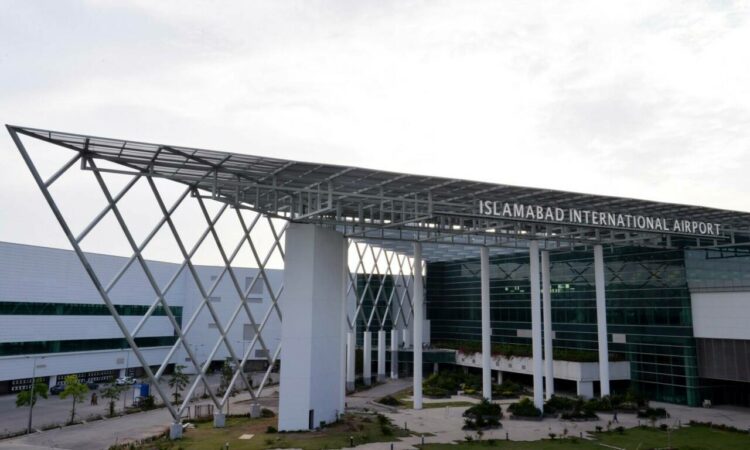Pakistan is on the verge of collapse as it is ready to outsource money for operations in the country amid the foreign exchange reserve crisis. Several meetings have already been held in this regard. As reported by the Dawn newspaper, the country will now outsource the financing of the Islamabad airport.
Finance Minister Ishaq Dar has held a series of meetings to court the money with foreign operators. Dar has also asked stakeholders to complete the formalities and paperwork. Once all the formalities are completed, the country will start outsourcing funds for Islamabad International Airport (IIA).
The official announcement after the meeting said, “The World Bank’s International Finance Corporation (IFC), which is acting as an advisor to the outsourcing, briefed the meeting on progress.”
The meeting agreed to fast-track IIA’s outsourcing to improve service delivery in line with best industry practices.
Notably, IFC also gave a presentation to the committee which also took decisions on the future roadmap of outsourcing IIA operations.
Dar wants changes to aviation laws approved before July ends. The meeting agreed to fast-track IIA’s outsourcing to improve service delivery in line with best industry practices, Dawn reported.
On March 31, the Economic Coordination Committee decided to kick off the 25-year outsourcing of operations and land assets at Islamabad, Lahore, and Karachi airports. Their operations will be run through a public-private partnership to generate foreign exchange.
In the meeting, Dar also gave a deadline to departments concerned for finalising amendments to civil aviation laws and a plan for Pakistan International Airlines (PIA) restructuring, Dawn reported.
The amendments are being made to segregate the functions of the Pakistan Civil Aviation Authority, PIA and Airports Security Force. The objective is to eliminate overlapping responsibilities of these organisations by enacting ordinances.
The minister emphasised getting amendments approved by the parliament before the end of July. This timeline is crucial as it would allow global aviation regulators to dispatch inspectors in August for an on-ground assessment of operational systems and standards necessary to restore PIA’s flights to the US, UK and Europe. Failure to meet this deadline would result in a year-long delay before the inspections occur, Dawn reported.
PIA’s flights to these destinations have been suspended since 2020 following a controversy surrounding pilots’ professional degrees and other aircraft safety standards.
The controversy drew global attention after the federal Minister for Aviation Ghulam Sarwar Khan in the National Assembly declared that 150 pilots of the national flag carrier had fake licences.
The meeting chaired by the finance minister was also attended by Federal Minister for Aviation and Railways Saad Rafique, Special Assistant to Prime Minister on Finance Tariq Bajwa, the Aviation Division secretary, Public Private Partnership Authority CEO, PCAA director general, IFC representatives and other government officials, reported Dawn.
According to the report, the National Assembly Standing Committee on Aviation was informed that the decision to outsource was taken to boost foreign exchange reserves.
As on July 7, ye net foreign reserves with the State Bank of Pakistan (SBP) were recorded at 4.5 billion dollars, up from 4.4 dollars recorded in the week ending June 30. Grappling with a balance of payments crisis and dwindling foreign exchange reserves, recently secured a 3 billion dollar bailout from the International Monetary Fund (IMF).
It was further clarified that the “PCCA was not selling the airports, as only the operation and management controls were being outsourced”.
Earlier, on March 31, another committee had decided to outsource the operations and properties of Islamabad, Lahore and Karachi airports for 25 years. “The operations will be handled through a public-private partnership to generate foreign exchange,” the report said.
The Stand-By Arrangement (SBA) will provide the total amount over a nine-month period and is expected to help stabilise the economy while creating room for social and development spending by improving domestic revenue mobilisation and spending carefully, according to the IMF.
Despite the IMF bailout, Pakistan will still need to seek multilateral and bilateral financial assistance, as it will need 22 billion dollars to meet its external payment obligations, including international debt service, in fiscal year 2024, according to a Reuters report.



















Comments